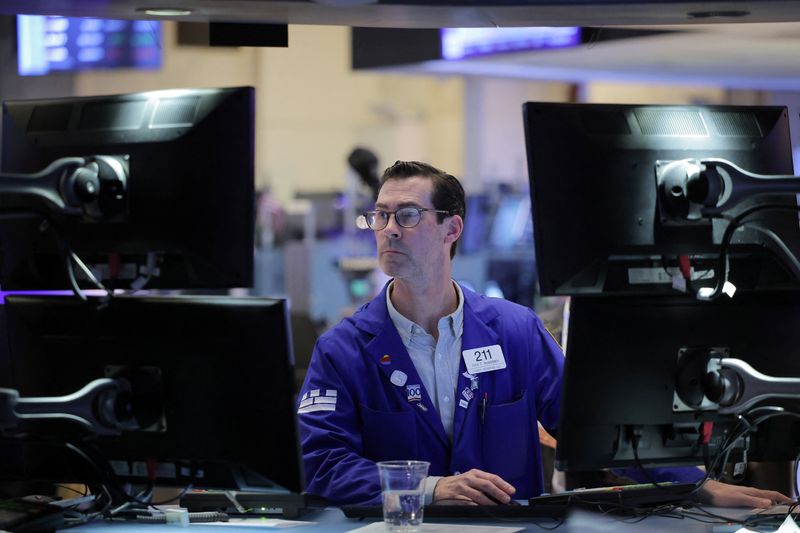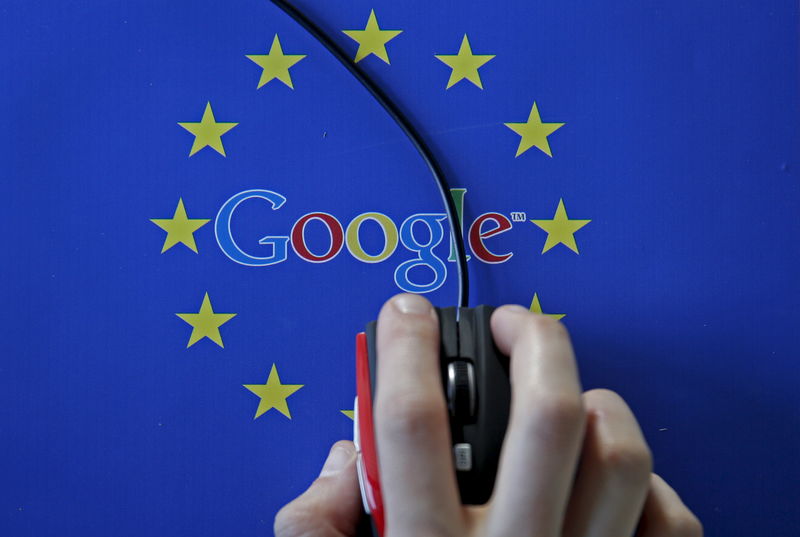(Reuters) – The U.S. Supreme Court’s current term features major cases involving former President Donald Trump’s ballot disqualification, his claim of immunity from prosecution, the abortion pill, gun rights, the power of federal agencies, social media regulation and Purdue Pharma’s bankruptcy settlement.
Here is a look at some of the rulings already issued, cases already argued and cases still to be argued this term.
TRUMP BALLOT DISQUALIFICATION
The court on March 4 handed Trump a major victory by barring states from disqualifying candidates for federal office under a constitutional provision involving insurrection and reversing Colorado’s exclusion of him from its ballot. The justices unanimously overturned a decision by Colorado’s top court to kick the former president off the state’s Republican primary ballot after finding that the U.S. Constitution’s 14th Amendment disqualified him from again holding public office. The Colorado court had found that Trump took part in an insurrection for inciting and supporting the Jan. 6, 2021, attack on the U.S. Capitol by his supporters.
TRUMP IMMUNITY CLAIM
The justices are set on April 25 to hear arguments in Trump’s claim of immunity from prosecution for trying to overturn his 2020 election loss to President Joe Biden. Lower courts have rejected Trump’s bid to be shielded from a federal criminal case pursued by Special Counsel Jack Smith, with the consideration of his appeal by the justices delaying the start of his trial. Trump has said he is immune because he was president when he took the actions aimed at undoing the election outcome. A ruling is expected by the end of June.
OBSTRUCTION CHARGE
The court on April 16 is set to hear arguments over whether a man named Joseph Fischer who was involved in the Capitol attack can be charged with obstructing an official proceeding – congressional certification of the 2020 election results. The case has potential implications for Trump because he faces the same charge in the special counsel’s federal election subversion case. A ruling is expected by the end of June.
ABORTION PILL ACCESS
The justices on March 26 heard arguments in a case involving possible restrictions in access to the abortion pill. The justices signaled they were unlikely to limit access, appearing skeptical that the anti-abortion groups and doctors challenging the drug, called mifepristone, have the needed legal standing to bring the case. The Biden administration has appealed a lower court’s ruling in favor of the plaintiffs that would limit how the medication is prescribed and distributed. A ruling is expected by the end of June.
IDAHO ABORTION LAW
The justices on April 24 are due to hear arguments over the legality of Idaho’s near-total abortion ban in medical-emergency situations. Idaho officials are appealing after a lower court concluded that the state’s Republican-backed abortion measure must yield to a federal law that ensures that patients can receive emergency “stabilizing care.” Biden’s administration, which sued over the Idaho law, has said that a 1986 U.S. statute could potentially require abortions that would not be included under Idaho’s narrow exception for saving the mother’s life. A decision in the case is expected by late June.
BUMP STOCKS
The court on Feb. 28 heard arguments over the legality of a ban imposed during Trump’s presidency on “bump stocks” – devices that enable semiautomatic weapons to fire rapidly like machine guns. The justices delved into the technical aspects of the devices. The Biden administration has appealed a lower court’s ruling in favor of a Texas gun shop owner who challenged the ban implemented after a 2017 mass shooting that killed 58 people in Las Vegas. A ruling is expected by the end of June.
NATIONAL RIFLE ASSOCIATION FREE SPEECH
The justices on March 18 heard arguments over the National Rifle Association’s claim that a New York state official violated its free speech rights under the U.S. Constitution’s First Amendment by coercing banks and insurers to cut ties with it. The NRA urged the justices to revive its lawsuit accusing the official, Maria Vullo, of unlawfully retaliating against it following a 2018 mass shooting that killed 17 people at a Parkland, Florida high school. The justices sought to distinguish permissible government advocacy from unlawful coercion. A ruling is expected by the end of June.
DOMESTIC VIOLENCE GUN CURBS
The court on Nov. 7 heard arguments over the legality of a federal law that makes it a crime for people under domestic violence restraining orders to have guns. The justices appeared inclined to uphold the law. Biden’s administration appealed a lower court’s ruling that the law violated the Constitution’s Second Amendment’s “right to keep and bear arms.” The challenge was filed by a Texas man charged with illegal gun possession while subject to a domestic violence restraining order after assaulting his girlfriend. A ruling is expected by the end of June.
SOUTH CAROLINA ELECTORAL MAP
The justices on Oct. 11 heard arguments over the legality of a Republican-drawn electoral map in South Carolina that was blocked by a lower court for racial bias after 30,000 Black residents were moved out of a U.S. House of Representatives district. The conservative justices signaled sympathy toward arguments made by Republican South Carolina officials. The lower court in 2023 found that the map violated constitutional provisions that guarantee equal protection under the law and bar racial voting discrimination. But on March 28 it decided that the map could be used in this year’s elections because the Supreme Court’s ruling had not yet been issued and the election calendar was fast approaching. A ruling by the Supreme Court is expected by the end of June.
FISH CONSERVATION PROGRAM
The court heard arguments on Jan. 17 in a bid by fishing companies to further limit the regulatory powers of federal agencies in a dispute involving a government-run program to monitor for overfishing of herring off New England’s coast. The justices appeared divided in the case. The companies have asked the court to rein in or overturn a precedent established in 1984 that calls for judges to defer to federal agency interpretation of U.S. laws deemed to be ambiguous, a doctrine called “ Chevron (NYSE:) deference.” A ruling is expected by the end of June.
CONSUMER WATCHDOG AGENCY’S FUNDING
The justices on Oct. 3 heard the payday lending industry’s challenge to the U.S. Consumer Financial Protection Bureau’s funding structure. The justices appeared skeptical of the challenge in a case that Biden’s administration has said imperils an agency set up to curb predatory lending after the 2008 global financial crisis. The administration appealed a lower court’s ruling that the funding mechanism violated the constitutional provision giving lawmakers the power of the purse. A ruling is expected by the end of June.
SEC IN-HOUSE ENFORCEMENT
The court on Nov. 29 heard arguments over the legality of proceedings conducted by in-house judges at the Securities and Exchange Commission to enforce investor-protection laws. The conservative justices signaled some sympathy toward the challenge brought by a Texas-based hedge fund manager who the SEC fined and barred from the industry after determining he had committed securities fraud. Biden’s administration appealed a lower court decision striking down the SEC enforcement proceedings at issue as unconstitutional for violating the right to a jury trial and infringing on presidential and congressional powers. A ruling is expected by the end of June.
SOCIAL MEDIA AND GOVERNMENT OFFICIALS
The justices on March 15 decided that government officials can sometimes be sued under the First Amendment for blocking critics on social media. In unanimous rulings in two cases from California and Michigan, the justices set a new standard for determining if public officials acted in a governmental capacity when blocking critics on social media – a test to be applied in lawsuits accusing them of First Amendment violations. First Amendment free speech protections generally constrain government actors, not private individuals.
SOCIAL MEDIA CONTENT MODERATION
The court on Feb. 26 heard arguments over the legality of Republican-backed laws in Texas and Florida that constrain the ability of social media companies to curb content on their platforms that these businesses deem objectionable. The justices expressed reservations about the laws but signaled they may not block them in their entirety. The two cases involve technology industry challenges contending that the laws restricting the content-moderation practices of large social media platforms violate First Amendment protections. A ruling is expected by the end of June.
PURDUE PHARMA BANKRUPTCY SETTLEMENT
The court on Dec. 4 heard arguments over whether to approve pain medication OxyContin maker Purdue Pharma’s bankruptcy settlement. The justices voiced concern that the deal would shield Purdue’s wealthy Sackler family owners from lawsuits over their role in a deadly opioid epidemic while also worrying that scuttling it could harm victims. Purdue’s owners under the settlement would receive immunity in exchange for paying up to $6 billion to settle thousands of lawsuits filed by states, hospitals, people who had become addicted and others who have sued the company over misleading marketing of OxyContin. A ruling is expected by the end of June.
HOMELESS ENCAMPMENTS
The justices on April 22 are set to hear arguments in an Oregon city’s bid to enforce local laws against people camping on public property, teeing up a legal fight over a homelessness crisis that has vexed municipalities across the Western United States. The case involves an appeal by the city of Grants Pass of a lower court’s ruling that found that the ordinances – which make it illegal to camp on sidewalks, streets, parks or other public places – violate the Constitution’s Eighth Amendment prohibition against “cruel and unusual” punishment. A decision in the case is expected by the end of June.
TAX ON FOREIGN EARNINGS
The court on Dec. 5 heard arguments in a challenge to a tax on Americans who have invested in certain foreign corporations. The justices appeared skeptical of the bid by a retired couple from Washington state who appealed after a lower court rejected their challenge to the tax on foreign company earnings, even though those profits have not been distributed to shareholders. A ruling is expected by the end of June.
‘TRUMP TOO SMALL’ TRADEMARK
The court on Nov. 1 heard arguments over whether a California attorney’s trademark for the phrase “Trump Too Small” – a cheeky criticism of the former president – should have been granted by the U.S. Trademark Office. The justices appeared skeptical that the attorney can own a federal trademark covering the phrase. The office, which denied the trademark, appealed a lower court’s decision that the attorney’s First Amendment protections for his criticism of public figures outweighed the agency’s concerns about Trump’s rights. A ruling is expected by the end of June.
Read the full article here














